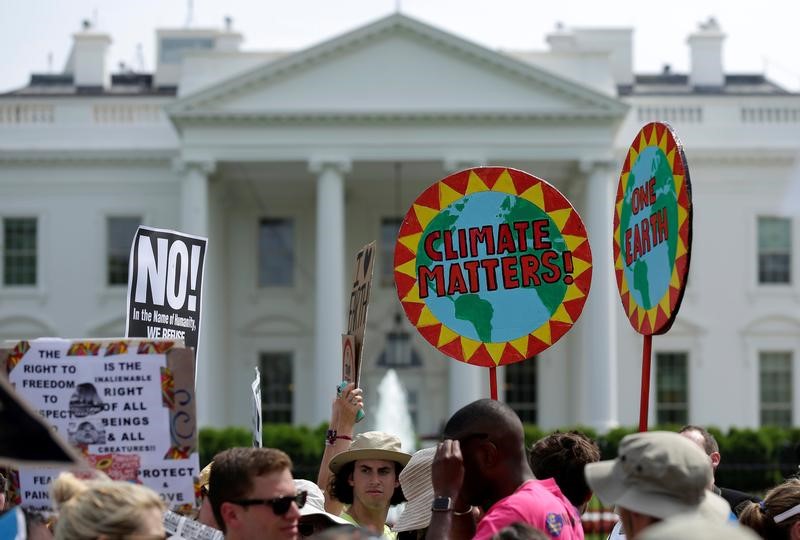OSLO (Reuters) - U.S. companies are still among the most ambitious in setting targets to combat global warming despite President Donald Trump's plans to quit the 195-nation Paris climate agreement, a 2017 survey showed on Tuesday.
U.S.-based firms made up a fifth of those in a 2017 "A list" of 159 companies judged to have ambitious policies on limiting climate change and protecting water resources and forests, according to London-based non-profit CDP.
This made U.S. firms the biggest single national group and was similar to levels in 2016, according to CDP, which tracks companies' environmental performance and was formerly known as the Carbon Disclosure Project.
"We don't see U.S. companies faring worse in our analysis" since Trump took office, said Marcus Norton, chief partnerships officer and general counsel at CDP.
"The business case for climate action remains despite a lack of support in the federal level," he told Reuters.
Trump has said he will pull out of the 2015 Paris deal and instead bolster the U.S. fossil fuel industry.
The U.S. president doubts mainstream findings that climate change will cause more floods, droughts, wildfires, heatwaves and rising sea levels.
U.S. companies on the 2017 list include Philip Morris International (NYSE:PM), Microsoft (NASDAQ:MSFT), Bank of America (NYSE:BAC) and Biogen (NASDAQ:BIIB) Inc. Norton said the criteria for inclusion on the CDP list were made tougher each year.
Separately, CDP said French cosmetics giant L'Oreal and Anglo-Dutch consumer goods group Unilever (LON:ULVR) were the top performers on the global ranking, scoring straight "A"s on a scorecard that rates corporate policies on preventing climate change, ensuring water security and protecting forests.
The two demonstrated "how business can reduce carbon dioxide emissions, increase water security and tackle deforestation while making a profit," CDP said.
The two firms have often scored highly.
Overall, CDP said 89 percent of companies in a wider survey of more than 1,000 companies had some form of carbon emissions targets, up from 85 percent in 2016.

And 14 percent were committed to aligning their goals with climate science, which requires deep cuts in emissions to achieve Paris agreement goals, up from 9 percent last year.